Products
Life Science Education
Biotechnology Explorer kits help you teach more efficiently by integrating multiple core content subjects into a single lab, and with a series of ready to go multi-week courses.
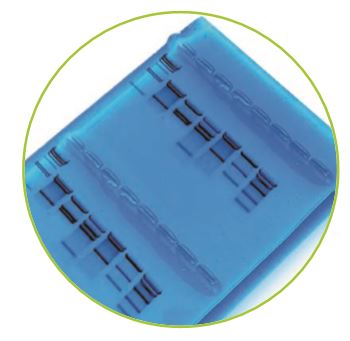
Forensic DNA Fingerprinting Kit
Catalog: 1660007EDUDNA evidence assists in criminal, missing persons, mass disaster, and paternity cases. It can be used to identify a perpetrator or exonerate the innocent. Using real DNA as evidence, your students play the role of crime scene investigator to figure out for themselves "Who done it?" The six DNA samples in the Forensic DNA Fingerprinting Kit are plasmids engineered to mimic the natural variations in DNA that exist between one human being and another. One DNA sample has been collected from a "crime scene" and five samples have been obtained from various "suspects." Each sample is digested using a mixture of two DNA restriction enzymes, which generates a distinct set of DNA fragments for each sample. The resulting DNA fragments are separated by agarose gel electrophoresis and visualized using Bio-Rad's revolutionary Fast Blast™ DNA stain.
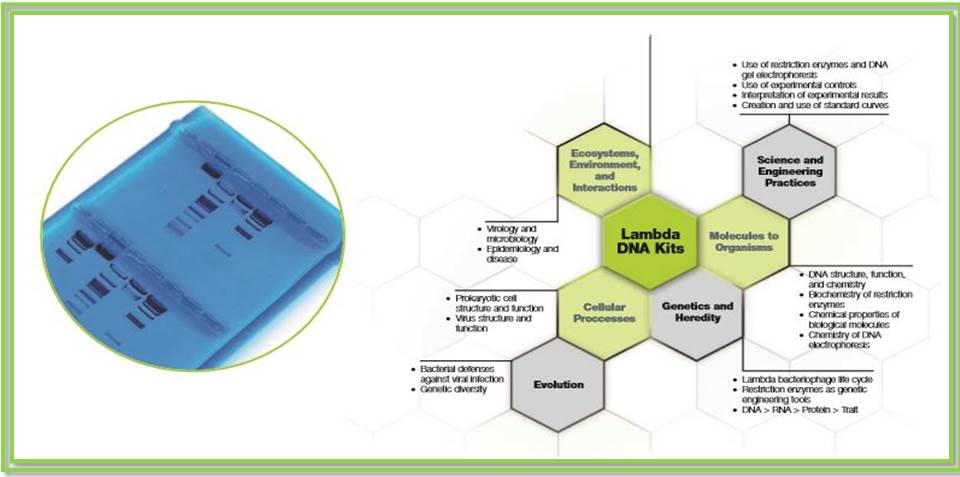
Analysis of Pre-cut Lambda Kit
Catalog: 1660001EDUElectrophoretic techniques that distinguish DNA fragments by size are essential in forensics and in the mapping of restriction sites within genes. The Analysis of Precut Lambda DNA Kit demonstrates basic procedures and principles of DNA gel electrophoresis, including agarose gel casting, sample loading, size-based separation of DNA fragments, DNA staining, and graphic analysis. This activity provides in-depth explanations about how restriction enzymes cut DNA and how electrophoresis can be used to separate and visualize DNA fragments.

Restriction Digestion and Analysis of Lambda DNA Kit
Catalog: 1660002EDUGrow a bacterial library
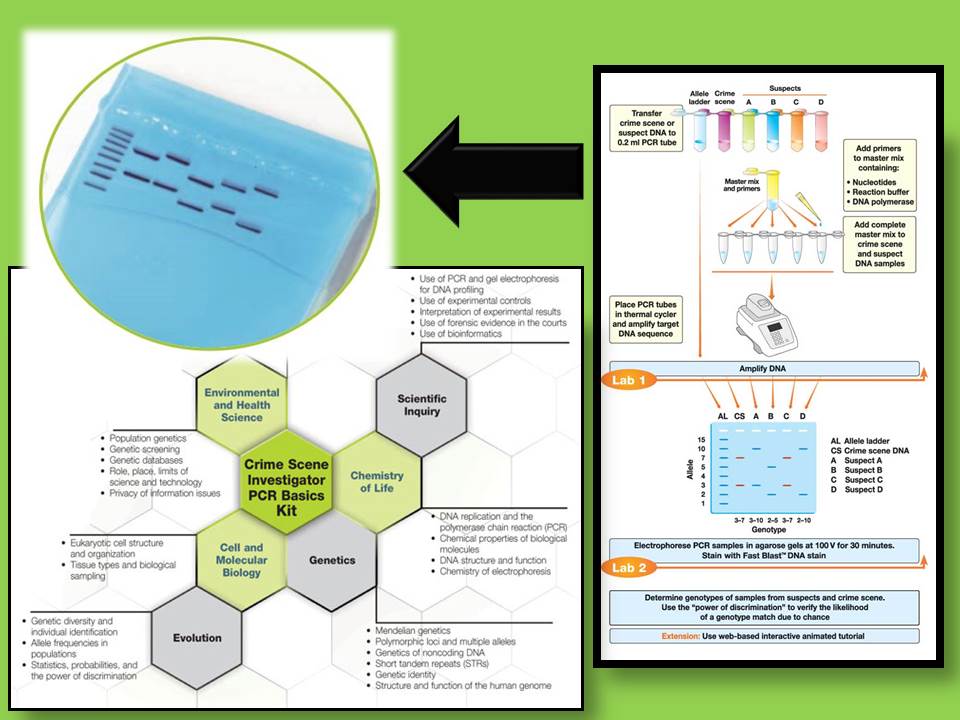
Crime Scene Investigator PCR Basics Kit
Catalog: 1662600EDUThe Crime Scene Investigator PCR Basics™ Kit is an introductory PCR kit that allows students to simulate DNA profiling as it is commonly used in forensic laboratories. The laboratory activity is designed to introduce the concepts of PCR, which is widely used in forensics, diagnostics, and archaeological procedures. The laboratory is performed without the need for complex genomic DNA extraction steps.
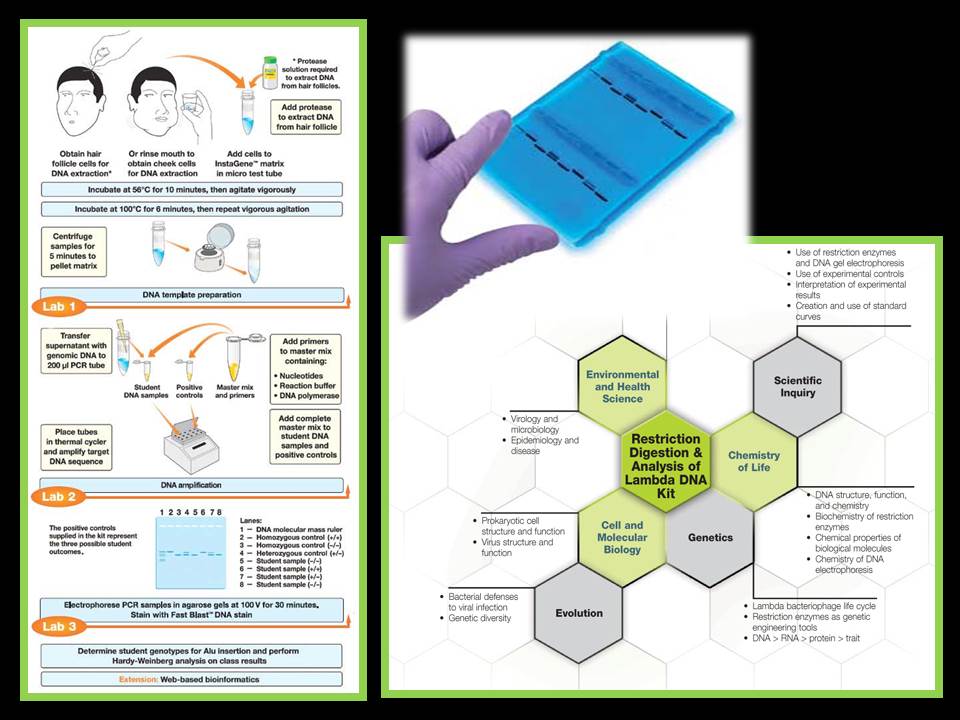
PV92 PCR Informatics Kit
Catalog: 1662100EDUWith the PV92 PCR Informatics Kit, your students use real-world forensic techniques to extract DNA from their hair follicles or cheek cells, and then use PCR amplification and electrophoresis to fingerprint their own DNA at a specific genetic locus. Using their own results, students test the Hardy-Weinberg equilibrium theory within their classroom population, then go online to compare their classroom results to genetic data of populations worldwide.
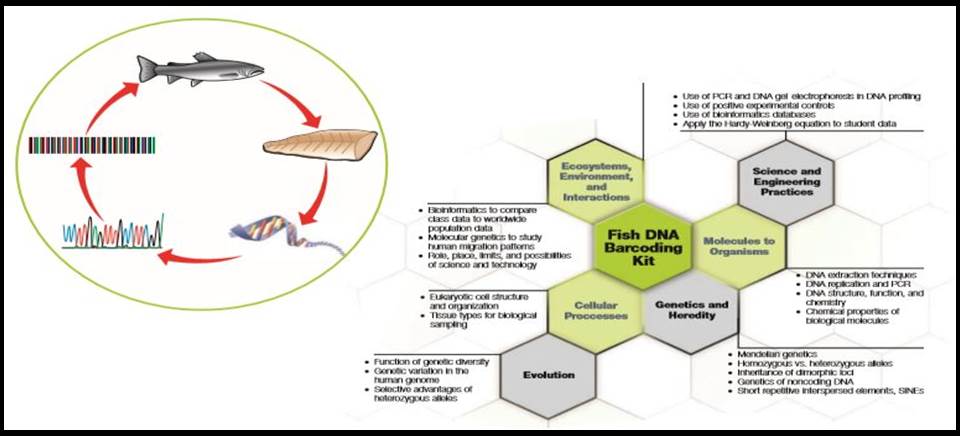
Fish DNA Barcoding Kit
Catalog: 1665100EDUThe Fish DNA Barcoding Kit is an advanced PCR kit that allows students to determine the species of a fish sample based on its DNA sequence of the cytochrome c oxidase I gene.
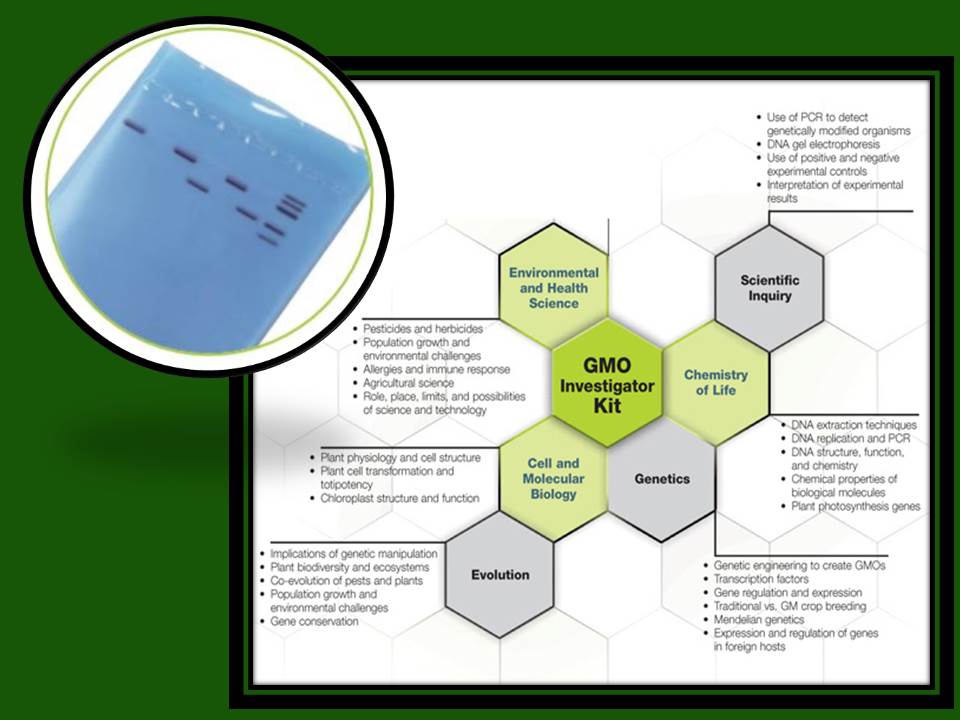
GMO Investigator Kit
Catalog: 1662500EDUThe GMO Investigator™ Kit uses PCR and DNA electrophoresis to test for the presence of two different GMO-associated DNA sequences: the 35S promoter of the cauliflower mosaic virus and the terminator of the nopaline synthase gene of?Agrobacterium tumefaciens. These DNA sequences are present in >85% of the GM crops that are approved for distribution worldwide. As a control for the integrity of the plant DNA extracted from food, PCR is used to amplify a section of the photosystem II chloroplast gene that is common to most higher plants. Students engage in a complete investigation in which they gather sample food items from the grocery store, extract DNA from the samples, amplify the DNA using polymerase chain reaction (PCR), and use agarose gel electrophoresis to identify the presence or absence of amplified GMO sequences.
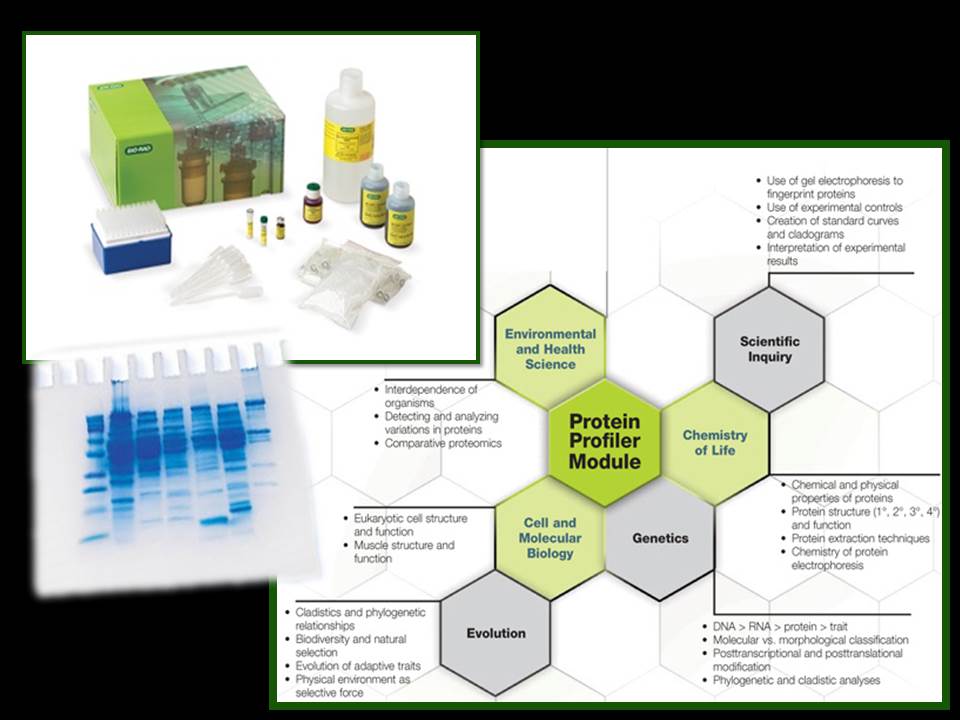
Comparative Proteomics Kit I: Protein Profiler Module
Catalog: 1662700EDUThe Comparative Proteomics I Kit: Protein Profiler Module guides students through the thought processes involved in a laboratory-based scientific investigation. Students make predictions about their results in pre-lab activities using Internet databases and published phylogenetic information. They then employ protein electrophoresis, the most widely used technique in life science research, to study protein structure and function, generating protein profiles from the muscles of both distantly and closely related species of fish. From their results, they compare the different species' profiles, construct cladograms (phylogenetic trees), and assign each organism a branch. Students can decide whether their results support their predictions.
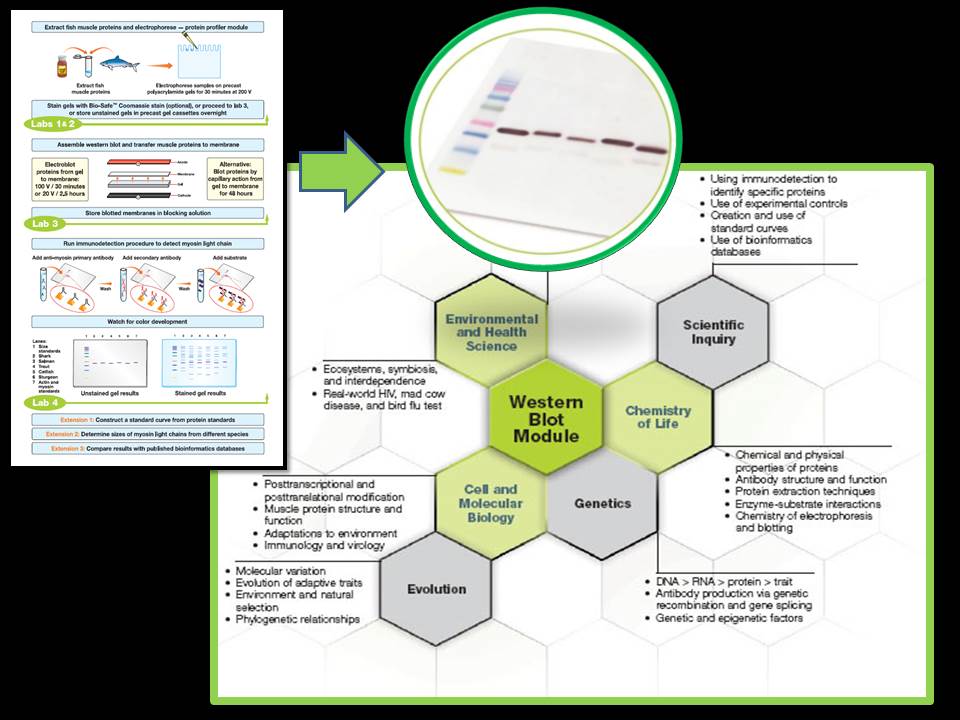
Comparative Proteomics Kit II: Western Blot Module
Catalog: 1662800EDUThe Comparative Proteomics Kit II: Western Blot Module is the second part of a two-part laboratory. In the first part of this laboratory (Comparative Proteomics Kit I: Protein Profiler Module), students use sodium dodecyl sulfate polyacrylamide gel electrophoresis (SDS-PAGE) to generate protein profiles and to visualize the unique array of proteins comprising muscle tissues from different fish. In this second part of the laboratory, students apply western blotting techniques to their polyacrylamide gel results to specifically identify myosin light chain from the hundreds of proteins that comprise the muscle cell extracts of closely and distantly related species of fish.
Contact
Get in Touch
We'd love to hear from you.
Our Address
1225 Quezon Avenue, Quezon City, Philippines 1104
Email Us
info@lifelinediag.com
Call Us
+63 2 8376 5917